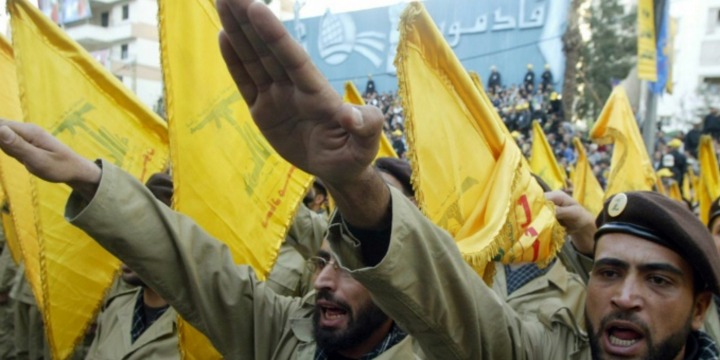Israel Sounds Alarm Over Renewed Iran-Hezbollah Activity

Tensions between Israel, Hezbollah and Iran have risen sharply this week, following the discovery of an Iranian program to set up weapons factories on Lebanese soil — for the manufacture of missile guidance systems.
Such guidance systems can be placed on Hezbollah’s arsenal of rockets and missiles, and turn inaccurate projectiles into precision-strike weapons, capabilities that were once reserved for the great powers. This capability would allow Hezbollah to target strategically sensitive targets deep in Israel, and cross a red line drawn by Israel over how far its enemies can build up their military capabilities.
These developments have led to a flurry of Israeli warnings in recent days, as part of a diplomatic attempt make Iran and its Hezbollah client desist from their activities. Israeli officials have made it clear that if their warnings go unheeded, military action will become likely.
“There is no doubt [that] this is a new stage in the attempts by Iran, to build independent capabilities … in Syria and Lebanon,” Dr. Ely Karmon, a senior scholar at the International Institute for Counter-Terrorism in Herzliya, told JNS.
The weapons factories in Syria are likely under direct Iranian control “and those in Lebanon under Hezbollah control,” Karmon said.
By building weapons factories in Lebanon and Syria, Iran can kill two birds with one stone, Karmon argued. It can arm its proxies with advanced weapons, and cut out the need for ground transportation of the weapons across routes that have proven vulnerable to Israeli detection and repeated alleged Israeli air strikes.
Israel has made no secret of its determination to disrupt this Iranian arms trafficking network. So far, it’s campaign to do so in Syria has succeeded in dodging a wider conflict. Military strikes in Lebanon, however, could change all of that. Hezbollah has warned in the past that it would respond to such attacks differently from its muted responses to alleged Israeli strikes in Syria.
Still, Iran has a clear incentive to take such risks. These factories make Iran’s proxies even more powerful, Karmon said, while limiting the “liberty of the decision making of the two legitimate governments [in Lebanon and Syria].”
Israel’s response in recent days has been urgent, and unusual. The spokesman of the Israel Defense Forces (IDF), Brig.-Gen. Ronen Manelis, took the rare step of writing a letter directly to the Lebanese people, and publishing it on Lebanese opposition websites — warning of dire consequences if work on the factories continued. Manelis said that the entire future of Lebanon and the region is being jeopardized by “the takeover of those who take their orders from Tehran.”
“The most severe things are hidden from view. Lebanon is actually turning, due to the failure of the Lebanese authorities and the turning of a blind eye by many members of the international community, into one large missile factory,” Manelis wrote. “Iran opened a new de facto branch in Lebanon. Iran is here.”
He described Lebanon a powder keg, which could blow up at any time due to Iran’s conduct. “Will Lebanon and the world community allow Iran and Hezbollah to take advantage of the naivety of the heads of the Lebanese state, and set up a factory for accurate missiles, as they are trying to do so these days?” he asked. “The IDF is prepared for all scenarios.”
Read More: Algeminer
